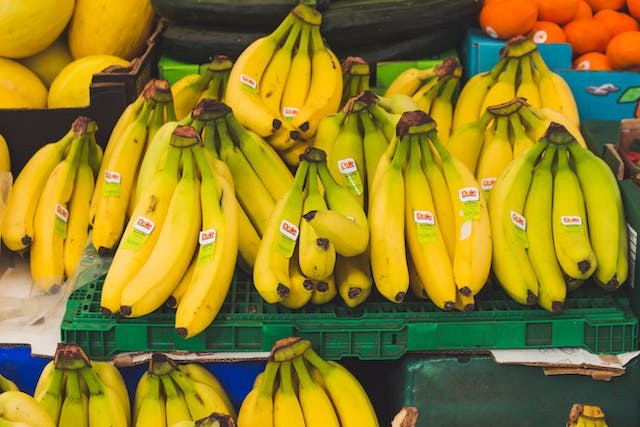
Bananas are delicious and nutritious, but you should avoid overeating them. Consuming too much every day is unhealthy.
Why Is It Not Good To Eat Banana Everyday?
There's no hard-and-fast rule regarding eating bananas, but most people should be fine consuming one or two a day. Remember that they contain a fair amount of carbohydrates, so eating them with protein or fat will also help maintain steady blood sugar levels.
According to the National Institute of Diabetes and Digestive and Kidney Diseases (NIDDK), people with chronic kidney disease should limit their intake of bananas and other foods high in potassium to prevent harm to their hearts and kidneys.
The condition known as hyperkalemia, or too much potassium in the body, can be brought on by eating too many bananas or other high-potassium foods.
Serious health concerns, such as cardiac problems, may result from this. Even if most individuals couldn't handle the quantity of bananas required to make this happen, it's something to be aware of.
Here are more health issues that could arise from eating too many bananas.
Nausea: While potassium has health benefits for the body, excessive potassium consumption raises the possibility of negative side effects.
Headache: The chemicals phenylethylamine and tyramine found in bananas can increase blood flow to the brain, which can cause headaches. It might be preferable to avoid eating overripe bananas because the tyramine level increases with banana ripeness.
Digestion issues: Although consuming too much fiber can result in digestive issues, including upset stomach, nausea, vomiting, bloating, and gas, bananas are an excellent method to increase your fiber intake and keep you regular.
Blood sugar spikes: Diabetics should consume a well-balanced diet of all three macronutrients (protein, fat, and carbohydrates). Drinking excessive amounts of bananas could upset this balance, leading to fluctuations in blood sugar.
Weight gain: Eating too many bananas can result in weight gain because they contain more calories and carbohydrates than other fruits.
Fatigue: Tryptophan, an amino acid found in bananas, aids in the production of serotonin, which promotes sleep. The natural muscle relaxant magnesium enhances this sensation. Thus, overindulgence may result in weariness and drowsiness.
Recommended Banana Intake
Bananas are a pleasant and nutrient-dense fruit for most healthy people. However, limiting your intake to one or two daily is advisable, as eating too many could result in nutrient deficiencies and weight gain. A balanced diet is essential for maintaining good health.
Unsurprisingly, bananas are one of the most popular fruits in the world. They are a common element in many international cuisines and are also practical and adaptable.
Even though they're a nutrient-dense, healthful snack, eating too many bananas could be harmful. To create a more nutritionally balanced meal, if you typically eat bananas for snacking, combine them with protein and healthy fat, such as peanut butter, a few walnuts, or a boiled egg.
Like other healthful foods, bananas should be eaten in moderation and as part of a well-balanced diet.
RELATED ARTICLE : COVID-19 Booster Shots: Is Your Choice of Vaccine Important? Does It Make a Difference? Experts Explain
Check out more news and information on Medicine & Health in Science Times.
© 2025 ScienceTimes.com All rights reserved. Do not reproduce without permission. The window to the world of Science Times.












